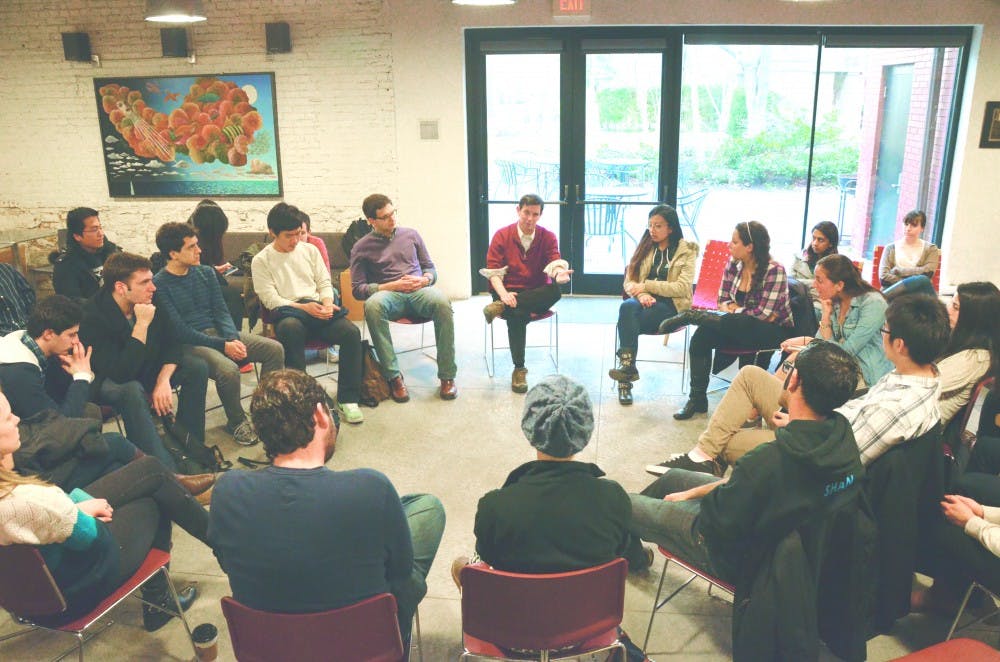The red-and-pink profile pictures that have taken over Facebook recently have also raised some questions.
And thanks to professor of constitutional law Rogers Smith, those questions might now have answers.
In the LGBT Center Wednesday night, Smith discussed the impending Supreme Court rulings that will determine the constitutionality of the Defense of Marriage Act and Proposition 8.
The event, hosted by Penn Democrats, was the first in their Fireside Chats program. College sophomore and Penn Dems president Matthew Kalmans, explained that with many speakers, students had “just a ten-minute Q&A” session to interact with the guest.
College sophomore and Penn Democrats secretary Tara Kutzbach said that the events would “give students a chance to ask the questions they really want to ask.”
Smith, whose research focuses on the intersection of law, politics and race relations, was there to lend his expertise to conversation about the two high-profile cases before the court this week.
Many attendees had been closely following the legal principles behind the two cases. College junior Hugh Hamilton asked Smith why, in the coverage of the cases, “the focus is so heavily on federalism and standing.” Smith responded that in the DOMA case, addressing questions of “federalism, as to whether it’s an appropriate use of federal powers” means that some potentially more controversial social and ideological issues behind same-sex marriage are never reached.
College sophomore Ethan Lowens later brought the conversation back to the issue of standing. Media coverage of the cases is “tying in empirical data about the effect of [being raised by a gay couple] on children’s development …. How does that fit in?”
Standing, Smith elaborated, is the idea that a plaintiff must have experienced demonstrable harm from the defendant’s actions in order to bring the case. But in the California Prop 8 trials, “there was no demonstrable harm to kids, to ‘traditional marriage,’” he said.
Others focused more on the relationship between the Court’s decisions and the beliefs of the American public. One anonymous student said that she wished “these cases had come a few years later … The decision could set [gay rights] back.” Smith agreed, likening this week’s cases to Roe v. Wade, the 1973 Supreme Court case which legalized abortion.
“There was steady progress towards expanding abortion rights until the case,” Smith said. But the decision “limited the mobilization of proponents and inflamed opposition … There’s the fear that the same thing might happen with same-sex rights.”
Near the end, the conversation turned to the issue of granting gay couples the right to civil unions, instead of the marriage rights that the Court is now debating.
Smith said that many lawyers have argued that “things are not equal if you don’t have the title of ‘marriage’ … Living together, raising kids together outside of marriage is a stigmatized thing, and [not being married] then makes their relationship second-class.”
Despite the ongoing controversy, and in whichever direction the Court decides this week, Smith believes that federally recognized gay marriage in the United States is inevitable.
“The heyday of the Reagan coalition is over,” he said. While currently only a very slim majority of Americans are in favor of gay marriage, “younger Americans generally support same-sex marriage rights … but eventually, it will just be the Supreme Court ratifying public opinion.”



